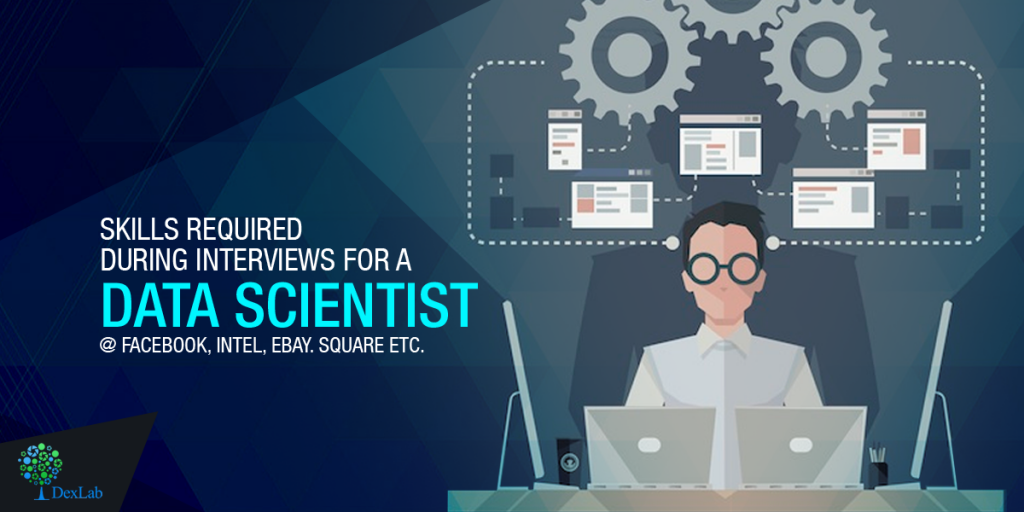Basic Programming Languages: You should know a statistical programming language, like R or Python (along with Numpy and Pandas Libraries), and a database querying language like SQL
Statistics: You should be able to explain phrases like null hypothesis, P-value, maximum likelihood estimators and confidence intervals. Statistics is important to crunch data and to pick out the most important figures out of a huge dataset. This is critical in the decision-making process and to design experiments.
Machine Learning: You should be able to explain K-nearest neighbors, random forests, and ensemble methods. These techniques typically are implemented in R or Python. These algorithms show to employers that you have exposure to how data science can be used in more practical manners.
Data Wrangling: You should be able to clean up data. This basically means understanding that “California” and “CA” are the same thing – a negative number cannot exist in a dataset that describes population. It is all about identifying corrupt (or impure) data and and correcting/deleting them.
Data Visualization: Data scientist is useless on his or her own. They need to communicate their findings to Product Managers in order to make sure those data are manifesting into real applications. Thus, familiarity with data visualization tools like ggplot is very important (so you can SHOW data, not just talk about them)
Software Engineering: You should know algorithms and data structures, as they are often necessary in creating efficient algorithms for machine learning. Know the use cases and run time of these data structures: Queues, Arrays, Lists, Stacks, Trees, etc.
What they look for? @ Mu-Sigma, Fractal Analytics
- Most of the analytics and data science companies, including third party analytics companies such as Mu-sigma and Fractal hire fresher’s in big numbers (some time in hundreds every year).
- You see one of the main reasons why they are able to survive in this industry is the “Cost Arbitrage” benefit between the US and other developed countries vs India.
- Generally speaking, they normally pay significantly lower for India talent in India compared to the same talent in the USA. Furthermore, hiring fresh talent from the campuses is one of the key strategies for them to maintain the low cost structure.
- If they are visiting your campuses for interview process, you should apply. In case if they are not visiting your campus, drop your resume to them using their corporate email id that you can find on their websites.
- Better will be to find someone in your network (such as seniors) who are working for these companies and ask them to refer you. This is normally the most effective approach after the campus placements.
Key Skills that look for are-
- Love for numbers and quantitative stuff
- Grit to keep on learning
- Some programming experience (preferred)
- Structured thinking approach
- Passion for solving problems
- Willingness to learn statistical concepts
Technical Skills
- Math (e.g. linear algebra, calculus and probability)
- Statistics (e.g. hypothesis testing and summary statistics)
- Machine learning tools and techniques (e.g. k-nearest neighbors, random forests, ensemble methods, etc.)
- Software engineering skills (e.g. distributed computing, algorithms and data structures)
- Data mining
- Data cleaning and munging
- Data visualization (e.g. ggplot and d3.js) and reporting techniques
- Unstructured data techniques
- Python / R and/or SAS languages
- SQL databases and database querying languages
- Python (most common), C/C++ Java, Perl
- Big data platforms like Hadoop, Hive & Pig
Business Skills
- Analytic Problem-Solving: Approaching high-level challenges with a clear eye on what is important; employing the right approach/methods to make the maximum use of time and human resources.
- Effective Communication: Detailing your techniques and discoveries to technical and non-technical audiences in a language they can understand.
- Intellectual Curiosity: Exploring new territories and finding creative and unusual ways to solve problems.
- Industry Knowledge: Understanding the way your chosen industryfunctions and how data are collected, analyzed and utilized.
Interested in a career in Data Analyst?
To learn more about Data Analyst with Advanced excel course – Enrol Now.
To learn more about Data Analyst with R Course – Enrol Now.
To learn more about Big Data Course – Enrol Now.To learn more about Machine Learning Using Python and Spark – Enrol Now.
To learn more about Data Analyst with SAS Course – Enrol Now.
To learn more about Data Analyst with Apache Spark Course – Enrol Now.
To learn more about Data Analyst with Market Risk Analytics and Modelling Course – Enrol Now.

